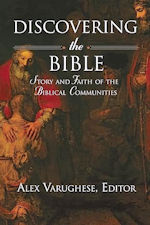
More classic art masterpieces used as illustrations
TL;DR
This crossword puzzle explores the Apostle Paul’s life, background, and letters as presented Discovering the Bible.
It tests knowledge of Paul’s Jewish and Greco-Roman context, his education under Gamaliel, and his conversion from Saul of Tarsus to the great missionary apostle.
The page concludes with an afterword summarizing Paul’s life and legacy as he went from persecutor of the early Church to being its most prolific theologian. His epistles, rich in theology and practical instruction, continue to shape Christian faith, emphasizing grace, faith, and unity among believers.


Challenge: Can you solve this printable puzzle even if you do not have the book by Varughese?

This crossword puzzle was created for use in the course Introduction to Biblical Literature. The words and clues come from the textbook Discovering the Bible: Story and Faith of the Biblical Communities, edited by Alex Varughese and published by what is now called The Foundry.
-- Howard Culbertson, hculbert@snu.edu
The Apostle Paul, originally known as Saul of Tarsus, is one of the most influential figures in Christianity. Born a Jew, he fervently opposed the early Christian movement. Then a dramatic conversion experience on the road to Damascus changed the course of his life. From then on, Paul was a passionate advocate for Jesus Christ. He traveled extensively throughout the Mediterranean region to spread the gospel. The letters he wrote to individuals and churches comprise a large portion of the New Testament. Believers cherish them for their theological depth and practical guidance. Paul's teachings on grace, faith, and the unity of believers continue to affect Christian theology and practice to this day. They cement his legacy as a towering figure in the history of Christianity.
Chapters 1-2 | Chapters 4-5 | Chapter 6 | Chapters 7-8 | Chapter 9 | Chapter 10 | Chapter 11 | Chapter 12 | Chapter 13 | Chapter 15 | Chapter 16 | Chapter 17 | Chapter 18 | Chapter 19 | Chapter 20 | Chapter 21 | Chapter 22 | Chapter 23 | Chapters 24-25 | Chapters 26 | Chapters 27 | Chapter 28 | Chapters 29-30 | Chapter 31 | Chapter 32 | Supplementary puzzles